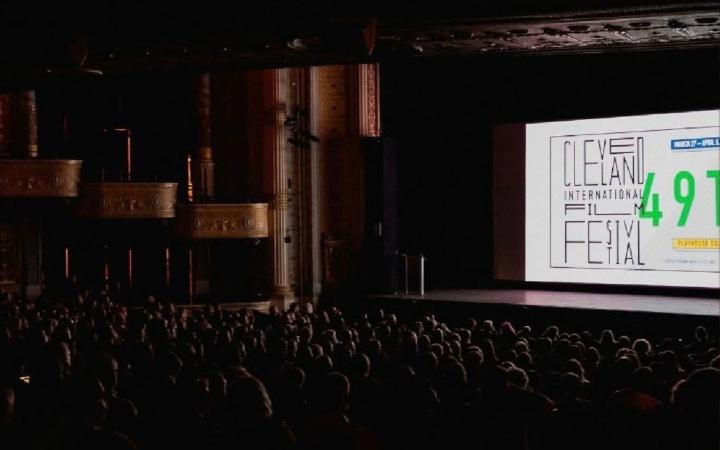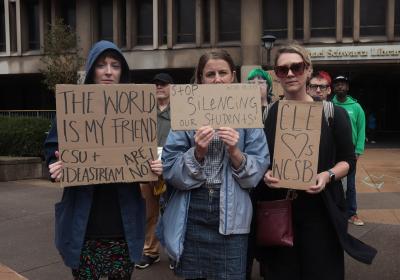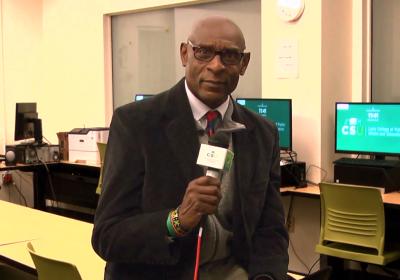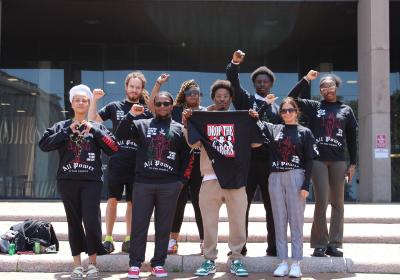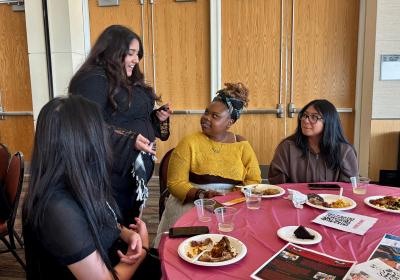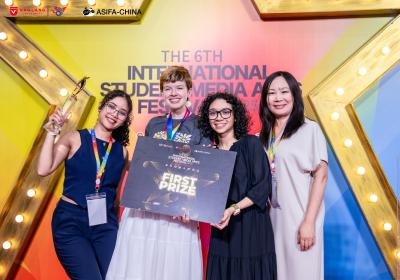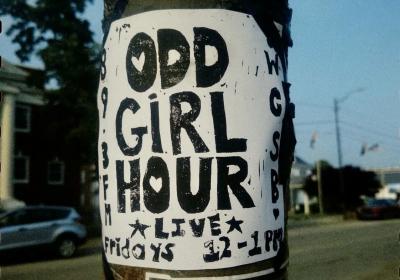
CSU student's work shows at international film festival
When Cleveland State University (CSU) student Richard Bryer began writing “CHARGER,” he was thinking about something that almost everyone has experienced – the unsettling realization of how deeply tied we are to our cell phones and how that connection shapes our relationships.
Now, “CHARGER” has reached an important milestone after being screened at the 49th Cleveland International Film Festival (CIFF), an achievement that Bryer says feels “incredibly surreal” and strengthens the power of student voices in the world of filmmaking.
“CHARGER” follows Riley, who, after an emotional fall out with their partner, is forced to stay at a friend’s house for a few days. In a hurry, Riley leaves behind a phone charger, a seemingly minor detail that spirals into a deeper reflection on dependency, communication and moving on.
The film doesn't just explore our reliance on technology, but challenges the audience to consider how technology has rewired our personal relationships.
Bryer explained that the film was born from his own anxieties about smartphones and communication.
“The idea stemmed from previous smartphone related anxieties I had and realizing how integral technology has become in our daily lives,” Bryer said. “Could one truly disappear off the face of the Earth if they aren't tethered to their phone?”
Unlike many films, where smartphones feel awkward and dated, Bryer made a conscious choice to “kill the smartphone quickly” in “CHARGER.”
This decision allows the story to focus not just on the device itself, but the lingering need for emotional connection, and what happens when that connection is gone.
Collaboration played a large role in bringing “CHARGER” to life. Working alongside producer Julia Moskowitz and director of photography Anna Pizon, Bryer said that the production process was both professional and deeply personal.
Having strong friendships prior to the production helped foster communication and creativity on set.
Bryer credited Pizon with capturing the film's distinctive look, drawing inspiration from the “Three Colors” Trilogy and the music videos of the band Arm’s Length.
“Many of the shaky, handheld shots are my favorite,” Bryer said.
As with many student projects, the journey from script to screen was not without challenges. Bryer shared the struggles the team faced such as tight budgets, difficult locations, miscommunication and the learning curve of executing a shot list.
One regret he mentioned was not prioritizing master shots during filming, a mistake that made postproduction editing more complicated. Bryer views these mistakes as crucial learning experiences.
“It became a very formative film for all of us involved,” Bryer said. “It only served to make everything we’ve created since bigger and better.”
Beyond the technical difficulties, Bryer also faced a personal challenge.
Known for making silly, campy films in the past, “CHARGER” marked a significant tonal shift.
“It’s easy to tell jokes, but it’s very hard to be personal and to show that side to your peers,” Bryer said.
Creating a more serious, such an introspective film required a leap of vulnerability that ultimately paid off.
“From the start of my time at CSU, CIFF has always been a massive bucket list item,” Bryer said. “The film industry has an incredibly high barrier of entry for storytellers – an insurmountable amount of luck is involved. “CHARGER” being screened at CIFF is important to me because I proved to myself that I have a voice that people want to hear.”
For students and emerging filmmakers, “CHARGER” serves as a testament to the power of intimate storytelling and the importance of commitment to the creative process.
Bryer’s advice to other filmmakers is straightforward: fully commit to your story.
“If you aren't fully dedicated to the idea, it's going to show in the art,” Bryer said.
He also emphasized the importance of detailed preproduction planning and collaboration.
“Study the script. Every detail matters, preproduction is essential,” Bryer said. “Everyone should approach the script with the same dedication the director does.”
As “CHARGER” reaches audiences beyond CSU, Bryer’s story and the film’s honest reflection on modern relationships remind students that their voices matter and that even small, personal stories can spark big conversations.
For those interested in watching “CHARGER,” it is available to watch on YouTube.

